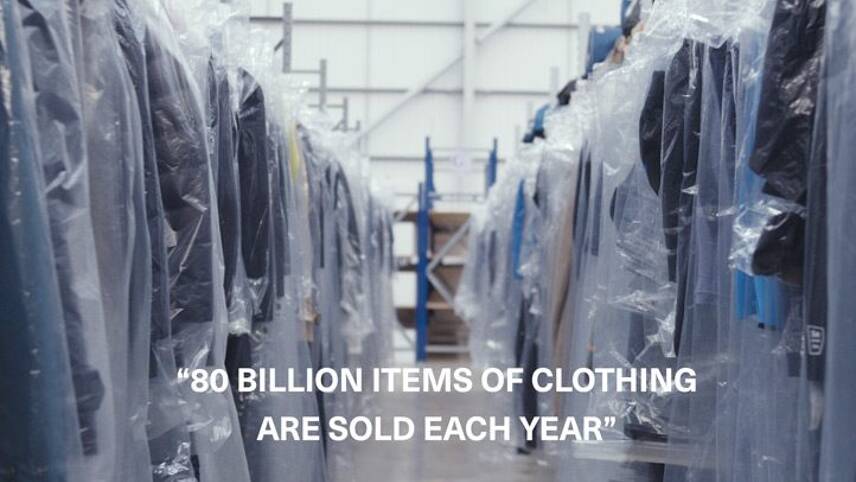Register for free and continue reading
Join our growing army of changemakers and get unlimited access to our premium content

Surfdome found that the polybags only account for 5% of a garment’s overall carbon footprint. Image: Surfdome
The two companies are combining on a three-month trial to remove the plastic polybags from clothing orders. Research suggests that an estimated 180 billion polybags are produced each year globally, but due to the materials low value, the bags aren’t usually collected for recycling and often end up as waste.
Under the trial, called Plastic Cutback, all Patagonia products sold on the Surfdome retail site will have the polybags removed “at the very final moment” before the products are shipped to customers.
Patagonia already uses 100% recycled polybags, but the two companies will ensure the bags are recycled by removing them and then sending them to a third-party organisation to be recycled.
The three-month trial will examine the recycling system for the bags, and it is hoped the service can be extended to the 800+ brands stocked by the Internet Fusion Group, which Surfdome is part of.
The retailers claim that bio-based alternatives aren’t yet suitable for the bags as they either biodegrade too soon, placing the product at risk, or too late which could lead to the material seeping into the natural environment. However, Surfdome found that the polybags only account for 5% of a garment’s overall carbon footprint, meaning that alternatives shouldn’t lead to an increase in emissions.
Surfdome’s head of sustainability Adam Hall said: “Through our innovative ‘Delivery Policy’ we have embedded a best-practice guide for our brands with regard to packaging and tackling plastic pollution. Most elements of packaging have a clear sustainable alternative… apart from the polybag.
“It’s a problematic area, and under the systems currently in place across industry, the best solution now is the ‘better handling’ of this material – i.e. an operational solution. It’s a first on this scale, and I’m proud we can begin to deliver that.”
In 2019, Surfdome’s outbound packaging (the outer packaging on top of product packaging like polybags) was 99.81% plastic free, with 94.44% made from recycled natural fibres.
Retailer approach
Other retailers have also turned their attention to these problematic bags.
Adidas, C&A, Kering, PVH Corp and Otto Group have teamed up under a new initiative aimed at developing a “truly circular” solution to plastic mailing bags for garments.
Facilitated by Fashion for Good, the initiative will see these retailers pilot polybags made using recycled content and without the inks and adhesive which make many models hard-to-recycle. Trials of these bags will last for three-to-five months before meetings are set up to develop a roadmap for upscaling the solution.
The organisation has since teamed up with First Mile, which will collect and recycle the plastic polybags from retail stores located in central London. The systems approach will be tested for three months, after which, Fashion for Good will analyse data on the viability of the collection scheme, while First Mile will report on the outcomes.
Elsewhere, online fashion retailer ASOS is set to trial reusable packaging, after months of work to develop an alternative to single-use plastic mailing bags. ASOS has pledged to eliminate all “unnecessary” or “problematic” plastic packaging items from the business and to ensure that all packaging is 100% recyclable, reusable or compostable. The target for both of these commitments has been set for 2025.
Surfdome’s Adam Hall recently took part in an online webinar session on single-use plastics alongside sustainability professionals from Sky and Nestlé. You can watch the Q&A debate, along with the rest of edie’s online plastics event, here.
Matt Mace


The most important aspect of this is in the opening paragraph:
"in a way that doesn’t impact product quality or generate an increase in lifecycle carbon emissions"
It is vital that everything we do is fully costed in terms of emissions, resources, energy and waste so that we do not "Pave the Road to Hell with Good Intentions". Sometimes what appears on the surface to be a green or sustainable idea is in fact more damaging than what it replaces.